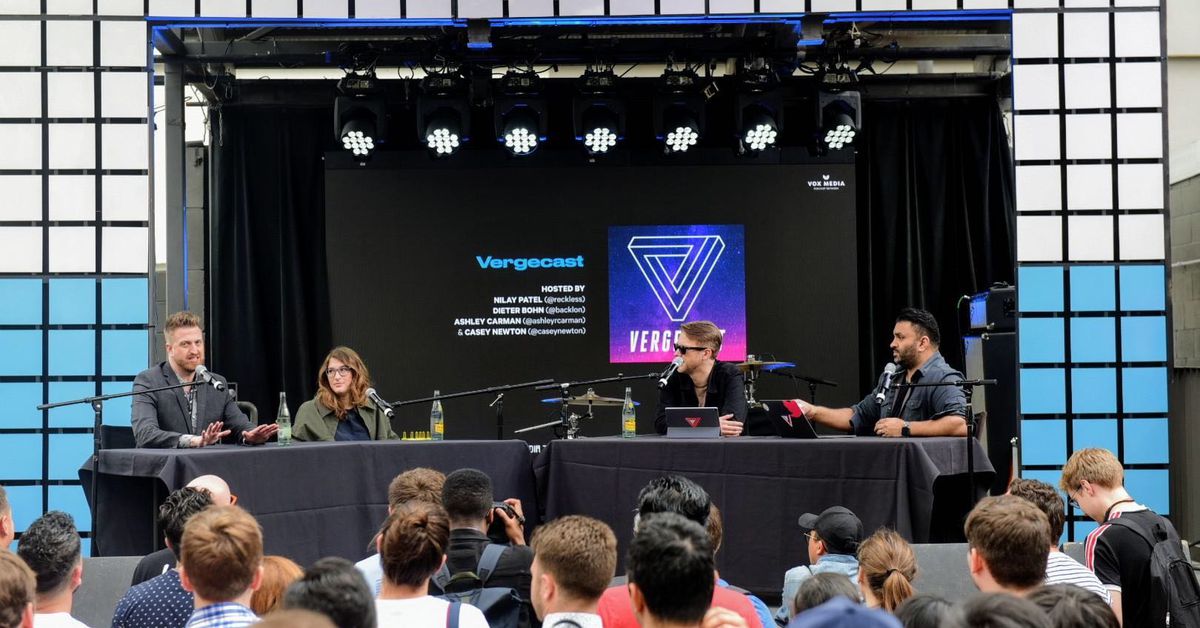
How would we break up the world’s most powerful companies? Live from SXSW, The Verge’s Nilay Patel, Dieter Bohn, Casey Newton, and Ashley Carman discuss just how one might split up tech giants like Amazon, Apple, Facebook, and Google.
You can listen to their discussion in its entirety on The Vergecast right now. Below is a lightly edited excerpt from this interview about the complications of breaking up a giant company like Google.
Nilay Patel: How would you break up Google?
Dieter Bohn: So according to this rubric that Elizabeth Warren set up, if you run a platform utility, it’s got to be spun off. Either the platform utility or some other part of the company stuff that’s on it. So Google runs two big ass platforms that make big money. There’s DoubleClick ads and then there’s Android and the Google Play network.
NP: Oh, that’s not what I would’ve said at all.
DB: Would you say Google search? It’s not a network that directly makes money. They don’t make money by selling search placement. They make money by putting ads in the placement. They preference their own stuff in some ways in search, but the way the money happens is through ads. Let’s just assume this crazy plan happens — the company is going to get to argue “Well, you want to break up search, but really the money is over there, so we’re going to spin off that thing and keep doing the same thing over here.”
NP: Yeah. That’s a decade of Google lawyers getting handsomely paid to yell about stuff.
DB: But the Android example is even more complicated. You think Facebook integrating WhatsApp and Instagram into its system more closely makes it harder to break up? It’s got nothing on Google Play. Unless you’re in China, your Android phone is basically garbage unless you are getting Google Play apps and Google Play services. Google is increasingly distributing all the parts of Android that matter through Google Play.
NP: The funniest outcome of this to me is YouTube. It’s the second biggest search engine in the world. As a search engine that distributes videos, it’s a marketplace. It’s also a video provider: Google makes YouTube Originals and YouTube Red. If you write a regulation that says you can’t make YouTube Originals, what harm have you prevented in this world? That’s where this just breaks down.
DB: There’s no “from on high” reason that the company that runs the ad marketplace has to be the same company that writes code for the search engine. They could just, like, license their services to the other company and vice versa. It’s possible to say “Alright, this is where it’s getting broken up. You’ll figure it out.” You spin out those companies into two different companies. Those companies are best friends and then in 10 years they’ll merge again and it will just be the Verizon story all over again.
NP: Yeah, the Verizon story is “We broke up AT&T into constituent parts.” Then Reagan deregulated the economy and then they just made AT&T again. They just literally bought each other until Cingular — which was most of the old AT&T — bought the last remaining AT&T company and then rebranded itself as AT&T. They just Borg-like assimilated into AT&T. That’s the natural tendency of these companies, to not compete. They don’t want to.
https://www.theverge.com/2019/3/12/18262050/facebook-google-amazon-antitrust-break-up-elizabeth-warren-sxsw-2019-vergecast

